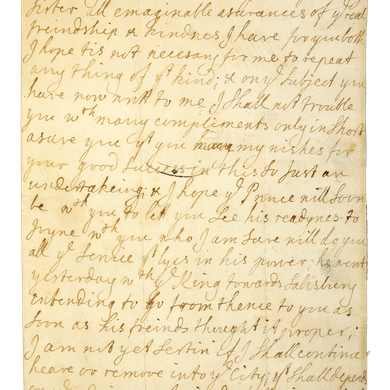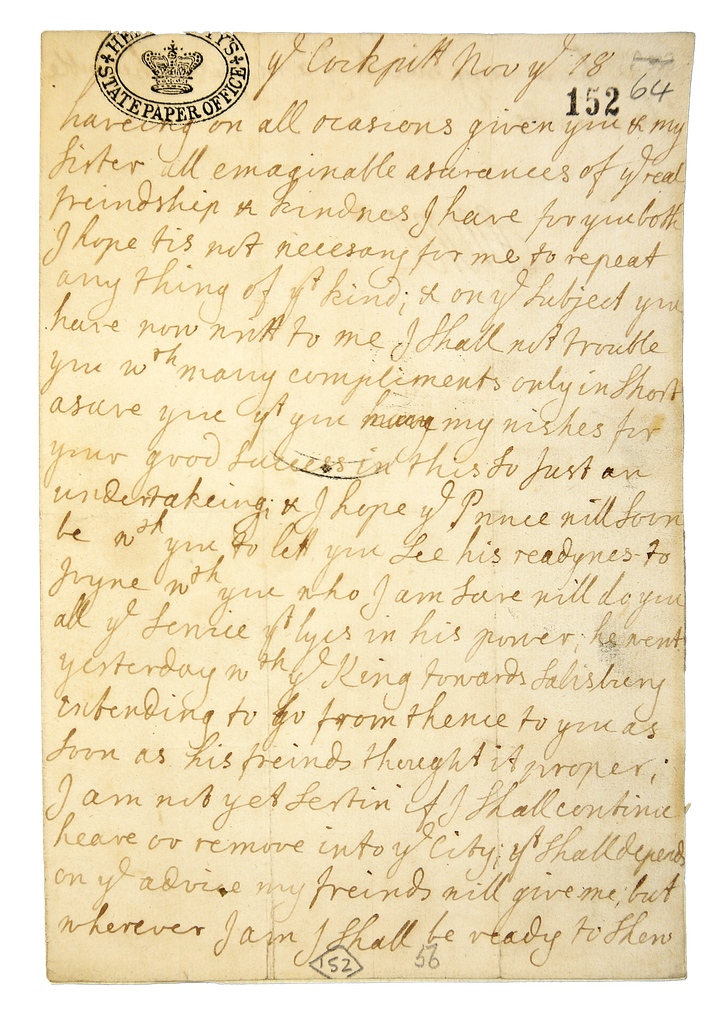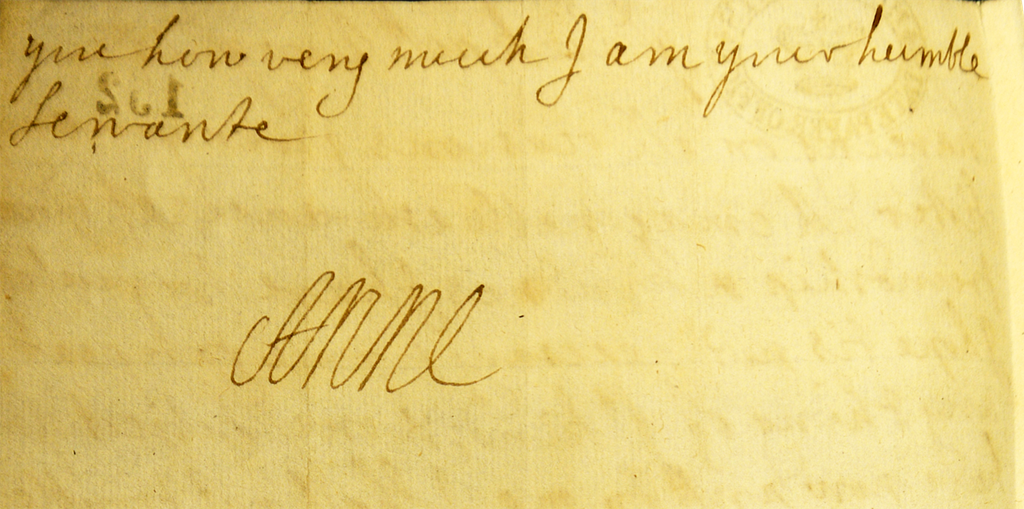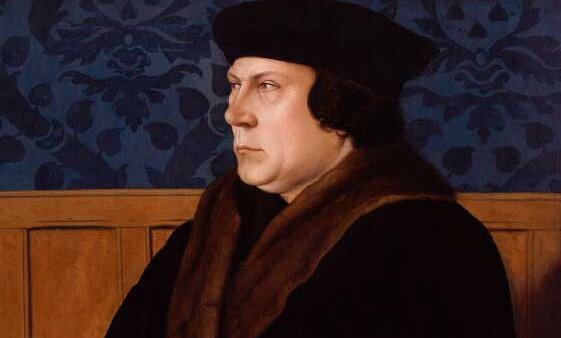Record revealed
Princess Anne's betrayal of her father, James II
This letter, sent by Princess Anne from her apartments at Whitehall Palace, shows evidence of the betrayal of King James II by his legitimate family and closest friends.

Image 1 of 2

Princess Anne's letter to William of Orange that she wrote from her apartments at the Cockpit at Whitehall Palace.
Transcript
ye Cockpitt Nov ye18
Haveing on all ocasions given you & my sister all emaginable asurances of ye real freindship & kindness I have for you both I hope tis not necessary for me to repeat any thing of yt kind; & on ye subject you have now writt to me I shall not trouble you wth many compliments only in short asure you yt you have my wishes for your good success in this so just an undertaking; & I hope ye Prince will soon be wth you to lett you see his readyness to joyne wth you who I am sure will do you all ye service yt lyes in his power; he went yesterday wth the King towards Salisbury intending to go from thence to you as soon as his freinds thought it proper; I am not sertain if I shall continue heare or remove into ye city; yt shall depend on ye advice my freinds will give me; but wherever I am I shall be ready to shew you how very much I am your humble servante
Anne
Modern English
The Cockpit Nov[ember] the 18
Having on all occasions given you and my sister all imaginable assurances of the real friendship and kindness I have for you both I hope ‘tis not necessary for me to repeat anything of that kind; and on the subject you have written to me I shall not trouble you with many compliments only in short assure you that you have my wishes for your good success in this so just an undertaking; and I hope the Prince will soon be with you to let you see his readiness to join you who I am sure will do you all the service that lies in his power; he went yesterday with the King towards Salisbury intending to go from thence to you as soon as his friends thought it proper; I am not certain if I shall continue here or remove into the city; that shall depend on the advice my friends will give me; but wherever I am I shall be ready to show you how very much I am your humble servant
Anne
Image 2 of 2

Signed by Anne, 'how very much I am your humble servant'.
Why this record matters
Date: 18 November 1688
Coming to the throne in 1685, King James II’s escalating arbitrary power and attempts to grant religious toleration to non-conformists and Catholics was unpopular among England’s Anglican majority. Public concern grew in June 1688, when James’s second wife, Mary of Modena, gave birth to a son, Prince James Francis Edward Stuart, which raised the prospect of a Roman Catholic dynasty. The situation was only heightened by James’s increasing desire to exclude all Protestants from state affairs.
Princess Anne’s sister and brother-in-law, Mary and William of Orange, were invited to invade England to dethrone the unpopular king. Anne was kept in seclusion in the lead-up to the so-called Glorious Revolution, her conduct probably influenced by her political allies and confidantes Lord and Lady Churchill.
Although forbidden by James to visit Mary in the spring of 1688, Anne corresponded with her, and was no doubt aware of William’s plans. Her position was a painful and critical one. She refused any sympathy for the King after William landed his multi-national forces at Torbay on 5 November. On the advice of the Churchills, she wrote this letter to William of Orange on 18 November declaring her approval of his action, ‘I shall be ready to show you how very much I am your humble servant’.
Anne also highlights her husband, Prince George of Denmark, then supporting James. She writes that he too ‘will soon be with you to let you see his readiness to join you who I am sure will do you all the service that lies in his power’.
The desertion of key army officers caused James’s nerve to crack, as it became clear to him that he could not inflict a military defeat on his son-in-law. He resolved to flee rather than fight his way westwards from his camp on Salisbury Plain. James’s soldiers were more loyal than the officers who continued to desert him. On November 23, Lieutenant-General John Churchill and Lord Grafton (an illegitimate son of Charles II) together with about 400 officers and troopers made for Crewkerne some 12 miles from William’s headquarters. Anne’s husband, Prince George of Denmark – thought set to be named the King’s commander in the west – finally deserted James at Andover a few days later.
The despondent James turned back to London, where he had a sizeable reserve army on Hounslow Heath, only to discover Princess Anne had fled. This crushing blow undoubtedly influenced his decision to abandon his Kingdoms. Anne’s flight (coinciding with her husband’s defection) was planned by Lady Churchill, who had persuaded the Princess to forsake her father.
Anne and Lady Churchill escaped by the backstairs from Whitehall and were conducted by the Bishop of London to the safety of Nottingham. Here, they were warmly received by William of Orange’s northern supporters.
What of Anne’s feelings of remorse or guilt? It’s difficult to say, but later, during her reign, she openly acknowledged the existence of her half-brother, James, known as ‘The Old Pretender’.
